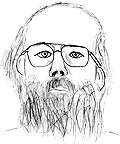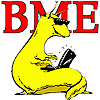Homework
- Intake survey Do in class Mon, 2017 Jan 9.
- By Tues. 2017 Jan 12. Request login permission on the UCSC Learning Center: http://learningcenter.ucsc.edu/. It may take a couple of days to get permission and there is an online safety course you need to complete by Friday!
- By Wed. 2017 Jan 11. Start keeping a log of time spent on this class. You should be
spending 6 hours a week on a 2-unit course: 3.5 hours in class and
2.5 hours outside class. Keep your log of minutes spent in a spreadsheet
format, with each day on a different row. Columns should be
something like "date", "class time", "reading", "design work",
"programming", "writing". Come up with headings that make sense to
you—two ideas that came up during class were adding
"construction" or "prototyping" and splitting each column into expected
and actual times.
I'll want to see the logs weekly, so that I can adjust assignments to avoid overworking students. Perhaps the simplest thing to do is to keep the log as a Google spreadsheet and give me (karplus@soe.ucsc.edu) read access to the spreadsheet—make sure the spreadsheet has your name on it, so I can keep them straight, as Google provides only non-mnemonic names for files.
- By Fri 2017 Jan 13. Complete the "Laboratory Safety for Research Personnel" E-Course through the UCSC Learning Center. The course is in their catalog under "Laboratory and Research Safety". Everyone in the class must complete this training before we can visit the Fab Lab, which I hope to do in the second week. (For more information about the Fab Lab, see https://bels.soe.ucsc.edu/FabLab.
- Turn in by e-mail by 5pm Tuesday, 2017 Jan 17: Look on-line for projects that might be interesting to design or build this quarter. Look at sites like Pasco, Vernier, and Arbor Scientific for ideas about what schools with money have in their labs. Look for do-it-yourself lab equipment ideas on the web. Turn in an annotated list of URLs for interesting sites as plain text, cut-and-pasted into e-mail to karplus@soe.ucsc.edu. Even better, mail to the whole class at bme88a-w17@soe.ucsc.edu. The annotation need not be extensive—a sentence about each web site, telling us what project(s) it has information about, should suffice. Raw URLs without annotation, however, are not acceptable. You should also explore whether the full URL is needed to get to the site—a lot of web sites add all sorts of extra tracking or status junk to URLs, and it is good practice to strip the URLs down to the essentials.
- TENTATIVE Before class Fri 2017 Jan 20, install Arduino IDE and Teensyduino add-on on your own computer (Mac, Linux, and Windows should all work). Write and test a program that blinks the on-board LED (pin 13).
- DUE Saturday, 2017 Jan 21, midnight.
Your next assignment is to pick projects from two other students and research them further, looking for more information, other design choices for the same result, possible problems with doing the design, workarounds for the problems, and so forth.
For each project you research, you should send an email to the class mailing list (bme88a-w17@soe.ucsc.edu), sharing what you have found and thought about. Discuss only one project in each email, and use BME88A and the project name (PCR machine, UV sensor, photogate, incubator, pulse monitor, ...) as the subject line of the message, so that others can find the messages about particular projects more easily. Respond to each other's research—if some one has identified a possible problem, and you've got an idea how to solve that problem or have found a resource on the web that addresses it, reply to everyone to contribute to the discussion!
I am expecting at least two email messages (two different projects) on the email list from each of you—sooner is better, so that everyone can read and think about your ideas before Monday's class. I hope that we can then discuss the projects that students found most interesting in class, with several people having already looked at the projects in some detail.
- TENTATIVE Due Monday, 2017 Jan 30.
Design a colorimeter for measuring OD600 in the Brand cuvettes you
got in class. I've bought LEDs,
(student choice
of LTL-4273 and 333-2UYC/H3/S400-A6)
phototransistors (LTR-4206), and foamcore.
I want you to design a colorimeter for measuring OD600 in the cuvettes you got. (Keyword=optical density) (also look up what OD600 is used for in monitoring cultures)
Design the mechanical part of the colorimeter so that the light source and photosensor are on opposite sides of the cuvette in a straight line perpendicular to the faces of the cuvette and there is no ambient light on the photosensor.
You might want to get yourself a razor knife (Exacto knife or cheaper equivalent) for cutting and scoring foam core (I have a few, but not enough to provide one for everyone).
I want each pair to build a prototype colorimeter that can measure the light coming through a cuvette. Your design needs to
- hold the LED and phototransistor in alignment,
- keep the cuvette from rotating (the faces of the cuvette should be at right angles to the light path),
- keep ambient light from reaching the phototransistor, and
- measure and report the light reaching the phototransistor.
Optional bonus assignment (programming): have the program record the light through a cuvette filled with water, and use that as reference to compute absorbance:
log_10 ( light with just water / light with absorbing material)For sizing the resistor on the phototransistor, you'll need to know how much current to expect—see https://gasstationwithoutpumps.wordpress.com/2017/01/26/phototransistor-i-vs-v-plots/ for a plot of the current vs. voltage that I measured for the phototransistor, illuminated by one of the LEDs.
Be prepared on Friday 2017 Jan 27 to ask for the resistor(s) you need for your design.
- TENTATIVE Turn in Mon 2017 Feb 6: Design report for a colorimeter (one report from each pair of students). A design report starts with a clear specification of the design goals: what does the device do? what constraints (cost, size, power available, and so forth) are there? The report continues with how you met the design goals, what problems arose, and how the problems were solved. There should be schematics for all electronics, complete with component values. There should be explanations (often computations) for how component values were chosen. There should be drawings, photographs, or both, sufficient for someone else to duplicate the physical design. Any external sources used should be clearly cited. As with all engineering documents, the authors' names and the date of the last revision should be on the first page, and all pages should be numbered. If you have any questions, please e-mail the bme88a-w17@soe.ucsc.edu mailing list, so that I can respond where everyone can read the answer.
- Turn in Wdd 2017 Feb 22: Design proposal (one per group),
containing at least the following:
- Design specifications: what exactly are you designing? what does it do? How can I tell whether or not you've designed what you intended?
- Block diagram: what are the subsystems of your design? How are they connected? What are the specifications for the interfaces?
- Design problems: what resources, parts, tools, educations, ... do you need to design and make for your block diagram to work?
Order any parts you need! Delivery always takes longer than you think, and you can't do much building or debugging without parts!
- Turn in Fri 2017 Mar 3: More detailed design report (one per group). Fill in the incomplete design specs from last time. Have a block diagram showing all the functional subsystems, including both hardware and software. Try to have a complete schematic for the hardware so that you can order parts and ask questions about parts of the design that you are struggling with.
- Turn in Fri 2017 March 10: More detailed design report (one per group).
Have block diagrams showing all the functional subsystems, including both
hardware and software. Have a complete schematic for the
hardware so that you can debug (note: the LED cube projects can use
some "…" to show repetition, but pin numbering on chips needs
to be clear).
Some of the software needs to be written—include it as an appendix to the report.
In this draft of the final report, indicate any changes to the design, progress on building the prototype, difficulties you need help resolving, and so forth.
- Final design report due NOON 2017 March 22.
The homework listed here is based on the Winter 2016 offering of the course. I expect the homework to be different this year, as what students need to learn will depend on what the students in the class want to pursue as projects. The web page will be updated as the class progresses.
Note: due dates below here are probably too late for completion of projects. We'll try to get projects started earlier this year.
- Turn in ?: Work individually and show derivations
for formulas (based on Ohm's law):
-
What is output voltage of voltage divider if the two inputs are
connected to VA and VB instead of to
Vin and GND? (Given: no current through the output port.)
The following circuit may not be identically labeled to the one I showed in class. I've also used batteries and a voltmeter here to make it clearer exactly what voltages we are talking about.

- What is the formula for the output of a negative-feedback op
amp circuit? (Given: no current through the inputs of the op amp,
and negative feedback holds the two inputs of the op amp to the
same voltage.)
Here is the circuit I gave in class. The labeling may be different from what I drew on the board, since this is an old version of the schematic that I happened to have in Scheme-It:

-
What is output voltage of voltage divider if the two inputs are
connected to VA and VB instead of to
Vin and GND? (Given: no current through the output port.)
Schedule
This part of the web page was not maintained during the quarter. Last 3 weeks of quarter were spent in lab, building and debugging the design projects.
| Date | Lecture Topic(s) | Due |
|---|---|---|
| Wed 2017 Mar 22 12–3 | final exam slot, Baskin 150 | all reports and demos |
|
|
|
Biomolecular Engineering
University of California, Santa Cruz
Santa Cruz, CA 95064
USA
karplus@soe.ucsc.edu
1-831-459-4250
318 Physical Sciences Building


